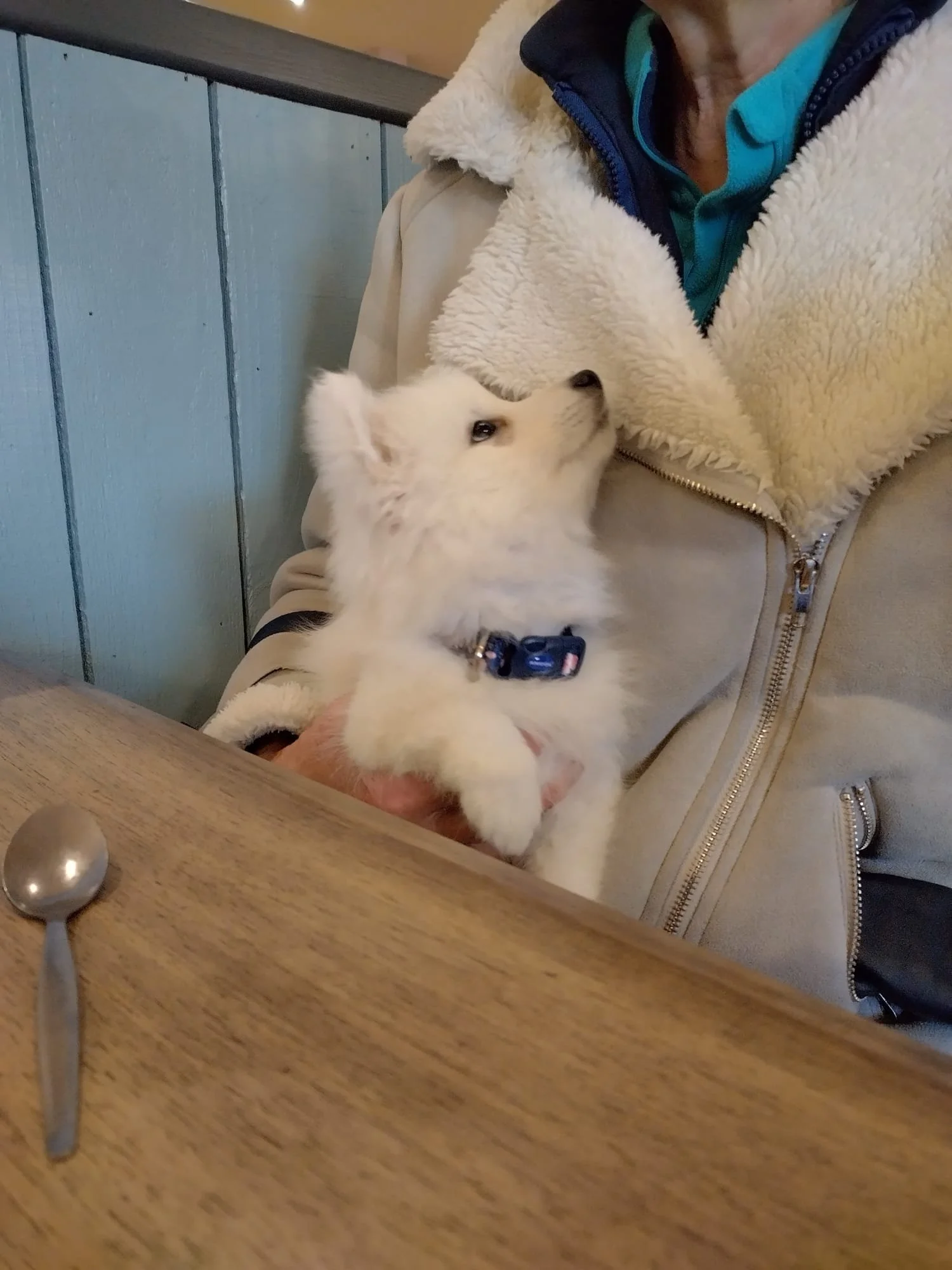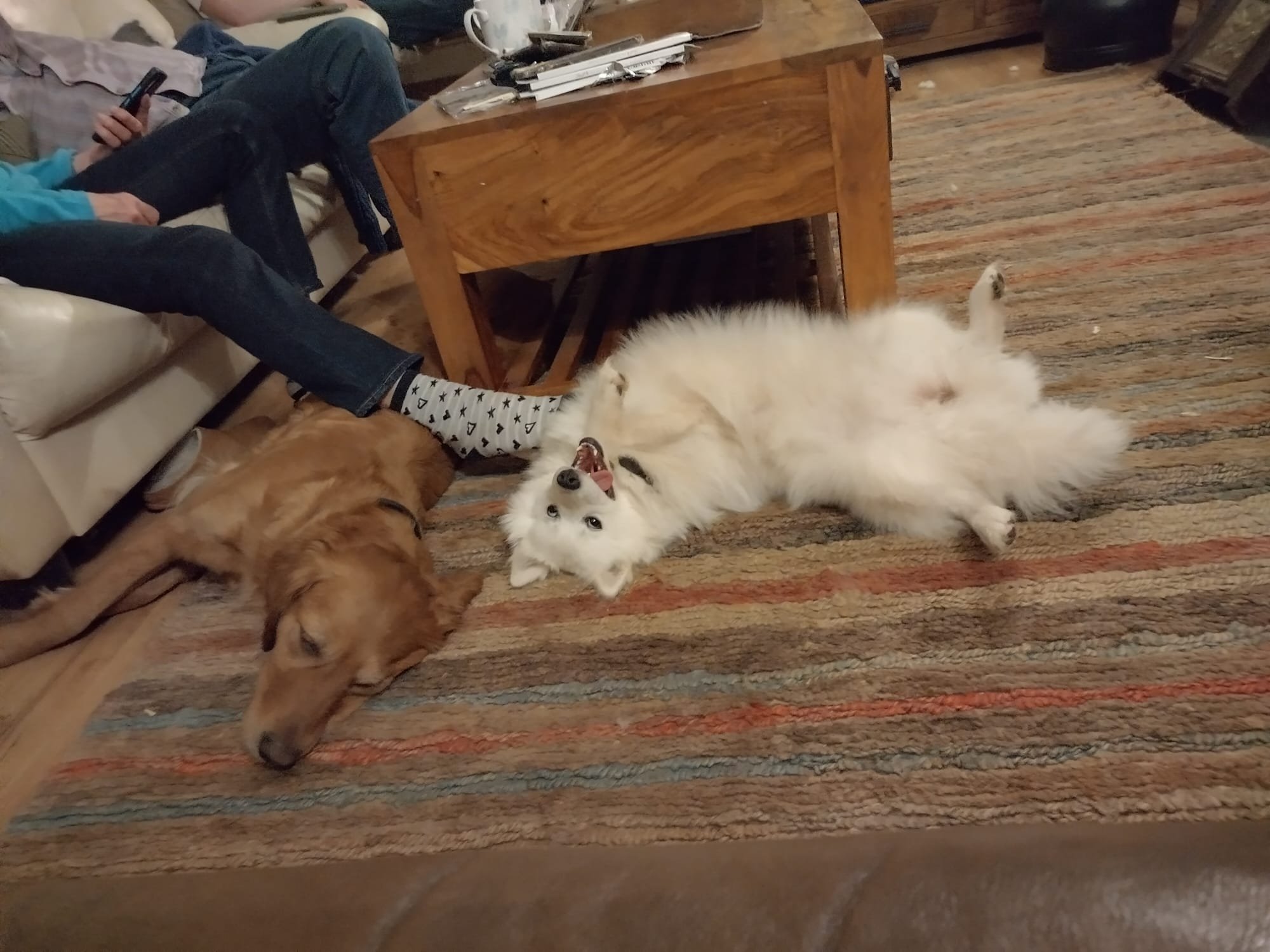why won’t my puppy listen to me any more?!
I just loved the first few weeks of owning my new puppy. I couldn’t wait to bring her home her and she didn’t disappoint me. She was sweet, fluffy, innocent and loving and learned so fast! By the time Nyx was 14 weeks old she was great with dog training. She would sit, come when called, wait for permission to eat her food, had stopped jumping up at my legs and had even started walking well on a loose lead. At this age they learn so fast and are so funny. It was wonderful.
What is happening?
Then I woke up one morning to find that my sweet little pup had been replaced in the night by a stubborn, barky teenager who couldn’t sit still for 2 seconds and whose greatest desire seemed to be destroying the lead every time it came near her! I watch her alternating between devil and angel on a daily basis. Still just as cute to look at, those teeth were getting stronger and so was her confidence. No longer would she stay by my side in the street when a large dog lumbered around the corner. Instead she barked and dragged me forward, regardless of the consequences.
Now, my calling her to me seems to be background noise some days and jumping up is fair game if there is food on the table. What is happening to my puppy and my dog training?
The Teenage stage
Nyx has become an adolescent! Somewhere at about 16 weeks or so of age most puppies go through this frustrating but important stage of their development. You may be tearing your hair out wondering why all your training has gone out of the window, but remember, it’s still there; your little darling is just testing the boundaries, dealing with hormonal changes and learning how she fits into the world and your family.
So many things happen to dogs’ bodies during adolescence and, like young humans, some of it isn’t necessarily that pleasant, so we need to be patient, manage the situation and wait. It can take just a few months or go on for a couple of years but your dog really will emerge from it a balanced and obedient adult. It can take patience, consistency and management and, most importantly, an understanding of what is going on.
Things to consider
Here are some things to be aware of and some thoughts on how to deal with them.
Puppies need to chew! If you don’t offer them appropriate things to get their teeth into they are very likely to start on your table legs, TV remote control or your best party shoes, so be ready. Have high value and long-lasting chews available and teach your puppy that every time she goes to her crate she will receive a delicious reward. Nyx will entertain herself happy in her crate when I am busy and I don’t have to worry about keeping an eye on her because I know she’s safe and happy, as is my table!
Adolescent dogs often have boundless energy and they need to use it. They have high levels of hormones surging through their system so they need plenty of exercise and things to do. This can be a challenge when walks are restricted because of joint concerns in many breeds. Apart from running and playing at home, chewing and sniffing, lead walking is great and tiring for dogs as they have to concentrate on what they are doing to stay next to you.
As their confidence grows and they start to view the world differently, adolescent dogs often begin to test their boundaries to see what they can get away with. This is why she might revisit habits like ignoring your instructions, stealing food, jumping up, etc.
During this period of adolescence your pup may react in an unexpected and fearful way to something very minor, or maybe even something you hadn’t even noticed. On the whole it’s best to ignore these fears and they are likely to go away. If you comfort and soothe your dog when she is worried you run the risk of making the worry worse. She may become sensitive to touch in parts of her body so try to remeber this.
As your puppy grows up, all parts of her body will not necessarily grow at the same rate. The back end of my puppy ran faster than the front for several weeks and she would fall over often. It didn’t seem to bother her much though! Adolescent dogs often go through a phase of wanting to climb too, so be sensitive to this and don’t scold them for being so adventurous.
As your puppy matures she will start to view the world in a different way from when she was very young. If you have had good advice, you will have made sure your pup has seen lots of dogs, met lots of people and experienced all the things you want her to be comfortable with as she grows up. This is called socialisation. It gives your young dog a picture of the world to work with and build on as she goes through life. Particularly if she hasn’t had the chance to learn about the world, she will start to become afraid of new things, people and dogs because they will worry her. Fortunately it’s always possible to socialise an older dog but it takes care and time to make sure that the experiences are positive and not overwhelming.
What to do
To help your puppy to get through this phase of her life, keep the following guidelines in mind:
· Be patient. She won’t understand frustration and anger.
· Be consistent with your instructions and expectations. She is still learning and needs to be reminded often of what you want and expect from her.
· Always praise and reward good behaviour. Your pup needs to learn that reward is associated with good behaviour, not just handed out randomly. Incidentally, a reward doesn’t have to be a treat. A pat, a kind word, a game, are all things your dog will love.
· Don’t ever punish your puppy. They don’t understand and it could make her afraid of you. Instead, focus on picking out what she has done right and ignoring the frustrating bits.
· Appropriate exercise and mental stimulation are really important. Don’t overdo it though. It’s just as important for your puppy to learn to relax as it is for her to learn to come and sit when asked.
Nyx is fast asleep in her bed now. Her crazy moments will become the stuff of memories and I won’t regret a single one!





